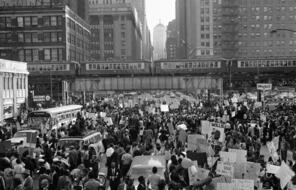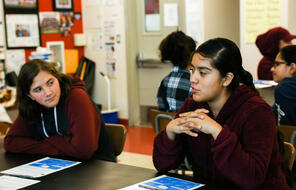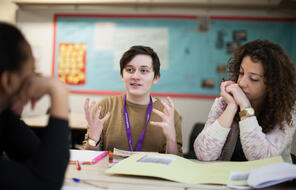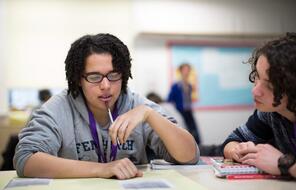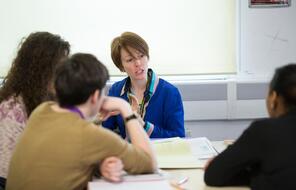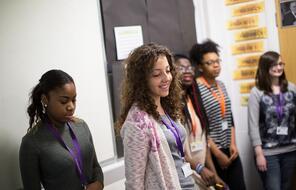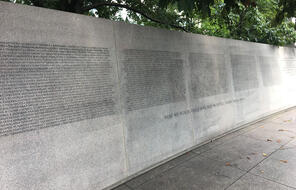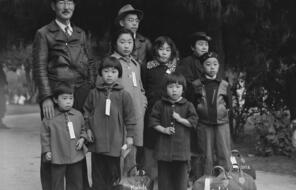Freedmen's Bureau Agent Reports on Progress in Education
At a Glance
Subject
- Civics & Citizenship
- History
- Racism
- Human & Civil Rights
- Racism
The following is an excerpt from a January 1866 Freedmen’s Bureau report on education for freedpeople in the South, written by Freedmen’s Bureau inspector John W. Alvord.
Not only are individuals seen at study, and under the most untoward circumstances, but in very many places I have found what I will call “native schools,” often rude and very imperfect, but there they are, a group, perhaps, of all ages, trying to learn. Some young man, some woman, or old preacher, in cellar, or shed, or corner of a negro meeting-house, with the alphabet in hand, or a torn spelling-book, is their teacher. All are full of enthusiasm with the new knowledge The Book is
imparting to them . . .
A still higher order of this native teaching is seen in the colored schools at Charleston, Savannah, and New Orleans. With many disadvantages they bear a very good examination. One I visited in the latter city, of 300 pupils, and wholly taught by educated colored men, would bear comparison with any ordinary school at the north. Not only good reading and spelling were heard, but lessons at the black-board in arithmetic, recitations in geography and English grammar. Very creditable specimens of writing were shown, and all the older classes could read or recite as fluently in French as in English. This was a free school, wholly supported by the colored people of the city . . . All the above cases illustrate the remark that this educational movement among the freedmen has in it a self-sustaining element. I took special pains to ascertain the facts on this particular point, and have to report that there are schools of this kind in some stage of advancement (taught and supported wholly by the people themselves) in all the large places I visited—often numbers of them, and they are also making their appearance through the interior of the entire country. The superintendent of South Carolina assured me that there was not a place of any size in the whole of that State where such a school was not attempted. I have much testimony, both oral and written, from others well informed, that the same is true of other States. There can scarcely be a doubt, and I venture the estimate, that at least 500 schools of this description are already in operation throughout the south. If, therefore, all these be added, and including soldiers and individuals at study, we shall have at least 125,000 as the entire educational census of this lately emancipated people.
This is a wonderful state of things. We have just emerged from a terrific war; peace is not yet declared. There is scarcely the beginning of reorganized society at the south; and yet here is a people long imbruted by slavery, and the most despised of any on earth, whose chains are no sooner broken than they spring to their feet and start up an exceeding great army, clothing themselves with intelligence. What other people on earth have ever shown, while in their ignorance, such a passion for education? 1
- 1United States Bureau of Refugees, Freedmen, and Abandoned Lands and John W. Alvord, Freedmen’s Schools and Textbooks, vol. 1, Semi-annual report on schools for freedmen: numbers 1–10, January 1866–July 1870 (AMS Press, 1868), 1–10.
How to Cite This Reading
Facing History & Ourselves, "Freedmen's Bureau Agent Reports on Progress in Education," last updated March 14, 2016.
This reading contains text not authored by Facing History & Ourselves. See footnotes for source information.

